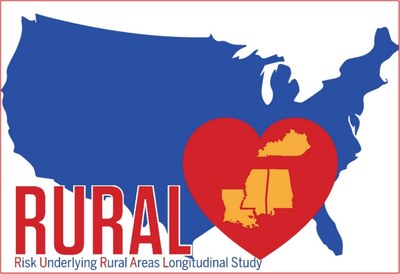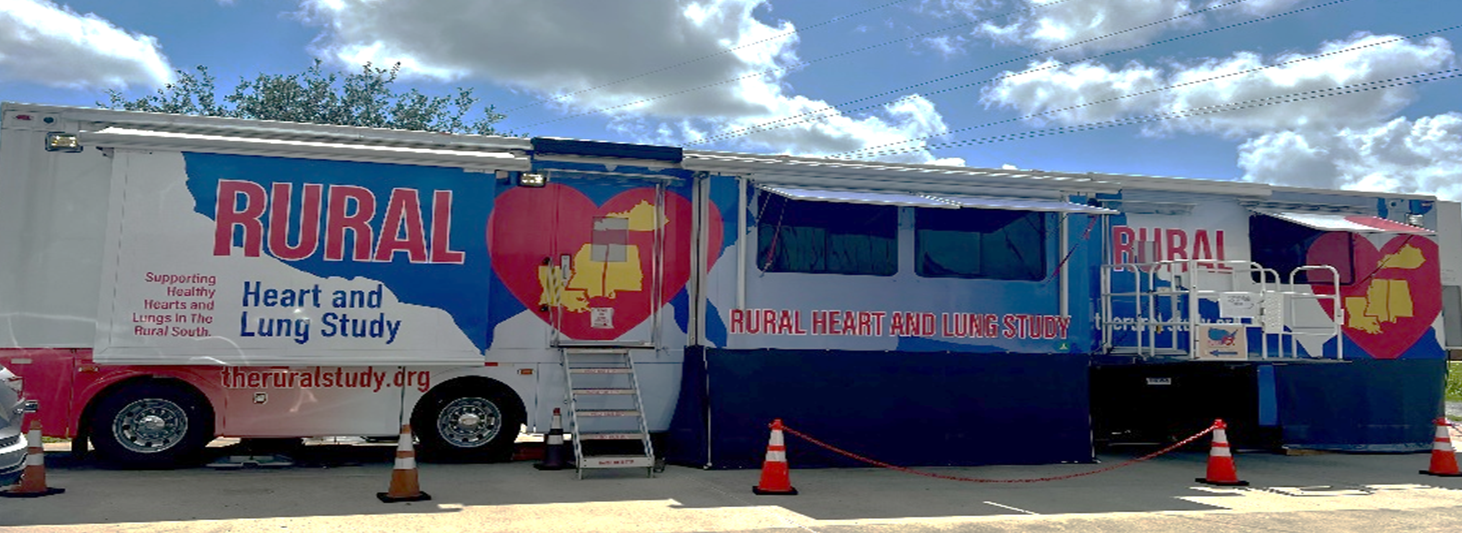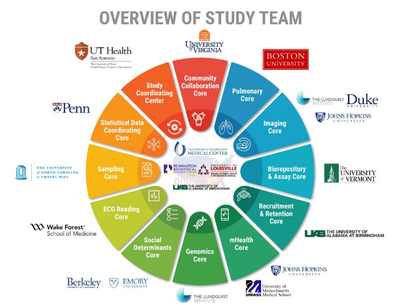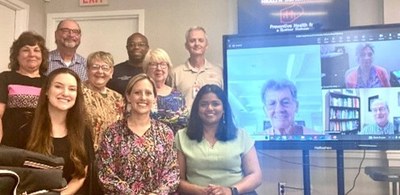SPHIS Home » Research » RURAL Study
RURAL Study

About the RURAL Study
The Risk Underlying Rural Areas Longitudinal Study (RURAL) is a prospective cohort study that will focus on 10 rural counties in Alabama, Kentucky, Louisiana, and Mississippi. The goal of the RURAL study is to bridge the rural research gap by concentrating on communities and geographic areas not adequately studied previously.
In Kentucky, we will be recruiting approximately 1,600 participants ages 25-64 years from Boyle, Breathitt, Garrard, and Perry counties, and recruitment will start in November 2024. The study began participant examinations in the Mobile Examination Unit (MEU) in Selma, located in Dallas County, Alabama, in August 2021. We have completed baseline recruitment in Wilcox and Dallas Counties in Alabama and Oktibbeha and Panola Counties in Mississippi and Assumption Parish, Louisiana. Currently participants are being recruited in Franklin Parish, Louisiana.
The Kentucky Core is led by Dr. Stephanie Boone, Associate Professor in the Department of Epidemiology and Population Health at UofL School of Public Health and Information Sciences with Dr. Kathy Baumgartner (Co-I) and Dr. Richard Baumgartner (Co-I).
We are collaborating with the Center for Excellence in Rural Health (CERH) in Hazard, KY. Dr. Frances Feltner, Director (CERH), will provide their expertise on implementing and sustaining the cohort and proposed research and help facilitate community engagement and outreach efforts.

With our Mobile Exam Unit (MEU) we will travel to the counties where participants will complete a baseline exam which includes a CT scan, Echocardiogram, Ankle-Brachial Index, spirometry and blood tests. Learn more about the MEU by watching this video.
Why is this being done?
Residents of Southern rural communities live shorter and less healthy lives than those residing elsewhere in the United States. The basis of this very high rural burden of heart, lung, and blood diseases is unclear. However, within the same Southern regions, counties with a very low risk of disease have profiles of poverty, race/ethnicity, and rurality similar to the high-risk ones. Therefore, the goal of this research is to understand which factors amplify risk in the rural South and what renders some communities resilient but others more vulnerable.

Who is doing the Research?
The study is funded by the National Heart, Lung, and Blood Institute (NHLBI) and led by researchers from 16 US institutions and coordinated by the University of Texas Health Science Center, San Antonio.
Community is the Foundation of our Research
The KY core has established Community Advisory Boards (CAB) in all four counties. The primary purpose of each CAB is to represent the local community, provide, and receive bidirectional information and feedback that reflects the interests, preferences, needs, and opinions of the local community regarding the operational and practical implementation and performance of the RURAL study. We will work to include the community and participants at every stage of the research.
Caleb Williams (UK CERH) serves as the Community Engagement Coordinator (CEC) for Perry and Breathitt counties and Stephie Abraham (UofL) serves as the CEC for Garrard and Boyle counties. The CECs are responsible for increasing brand recognition and liaison between the study participants/community and the study team.
For study updates check out the RURAL Study’s Kentucky Facebook & Instagram
Need more information?

If you would like to learn more about the RURAL study, please contact Dr. Stephanie Boone or visit the RURAL Cohort Study website.
To learn more about our Community Engagement activities, visit: Community Activities in Kentucky - The RURAL Cohort Study (theruralstudy.org)
Contact the KY RURAL study team at ruralky@louisville.edu
In The News
WYMT Mountain News "Issues and Answers" featuring Dr. Stephanie Boone
Study to explore reasons rural communities are less healthy
UofL researchers part of a NIH-funded multi-site longitudinal study
U of L to participate in New Four-State Study on Rural Health Outcomes






